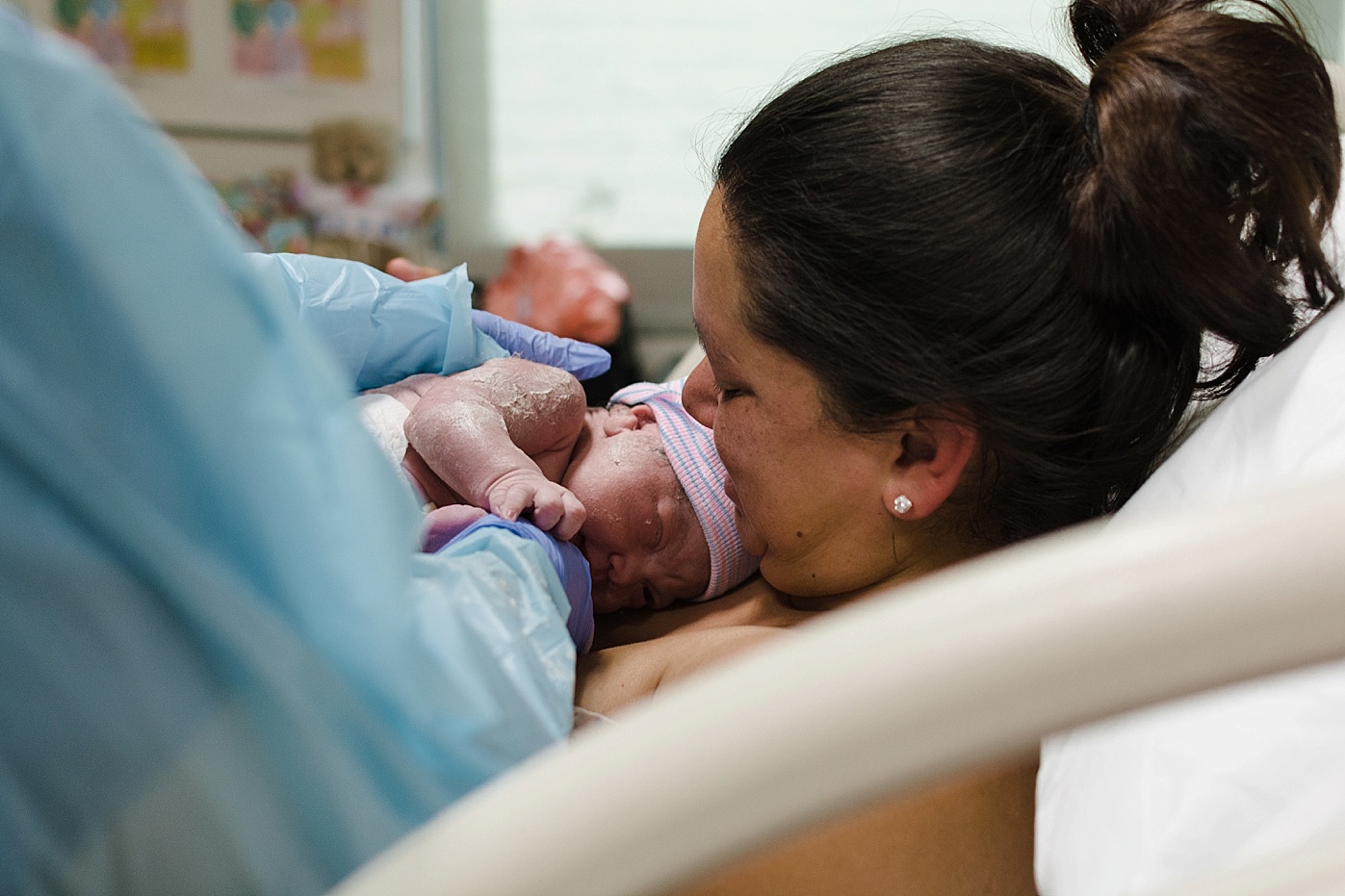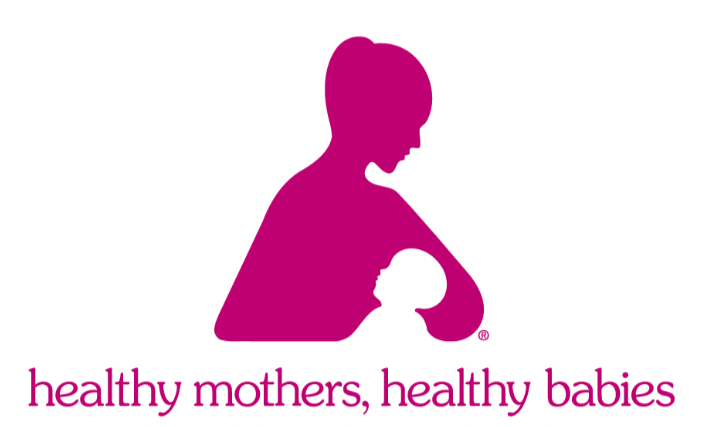https://cdn.steemitimages.com/DQmNWEfebh8pE8s6Ac9tR1w7tSszf4N2D9s7FVnRJtFoUuX/miracle%20in%20me.jpg
# Miracles can be difficult to come by, but the act of birth is often described as such. ___

[Source](https://www.youtube.com/watch?v=h6oIbcr4IgM)
___ The ability to conceive, nurture within the body, then birth a new life is surely phenomenal. Everyone has their own unique experience with pregnancy and childbirth. Some mothers have a fantastic experience, while others go through horrific encounters. I interviewed Melody C. about her experiences with pregnancy and childbirth to learn from a mother exactly what their thoughts and feelings were surrounding this topic. Melody described her connection with God through the act of childbirth, that being able to bring life into the world was indeed a miracle. She recalled a growing excitement of the unknown as each day passed. The joy in her voice filled the room as she remembered waiting for the first movements, and shopping for maternity clothes so others might know that she’s pregnant. However, other people knowing she was pregnant meant that they knew she had sex. This made her feel a bit of insecurity because she grew up in a household where sex was taboo. ___ # A love for something that was not quite there yet began to develop deep in her heart. ___ Melody mentioned that she felt an overwhelming sense of responsibility to make sure that her child was born healthy. She began prenatal care in the second trimester, mostly because she didn’t know she was pregnant at first, and brought up some interesting points. The doctors at the time focused mainly, if not entirely, on taking different measurements to chart the fetus’s growth. There was no information exchanged on nutritional intake for the mother at these appointments. I asked Melody how having good health insurance and access to high quality doctors that only focused on statistics had made her feel. She responded, >“It put [me] at ease knowing the baby is growing per the charts correctly and I trusted all in my doctors. I had good doctors. I knew that if they saw anything wrong in the bloodwork, or anything like that, that I would immediately be sent to a specialist. So, I really had no worry about any of that.” Having the support of a qualified medical team clearly gave her more confidence about how she and her coming child were doing. Melody purchased books to learn about the nutritional and health aspects that were not covered in prenatal care. ___

[Source](http://www.maternityandmidwifery.co.uk/events/london-2016/poster-presentations/)
___ ## Seeking the best medical care possible was the only thing Melody cared about with the astounding pressure to give birth to a healthy child on her back. ___ Melody called the hospital when she went into labor at 5am and the doctor told her that he had been delivering babies all night long and that women were in labor in the hallways. This made her very distraught because it was the best hospital in the area. The doctor then told her that a newer hospital had just opened a brand-new delivery wing and that she should go there. Melody left for the new hospital after she took her time to shower, recalling that she had to get back in the shower because she had forgotten to shave her legs. She was in excruciating pain by the time she arrived at the hospital and settled into a room. In agonizing pain, around 10AM, Melody requested an epidural to relieve the pain to a more manageable level. The epidural was administered and she instantly fell asleep. She woke back up around 2PM and recounted the dire need to poop, shouting to the nurses that she was about to poop on the doctor. They told her to keep pushing because that’s the baby coming, and that it would be okay if she pooped on the doctor. ___ ### Melody recalled a moment between this time and the actual delivery which quickly changed the entire mood of the conversation from joyous to somber. ___ Everything was going as it should have when suddenly the monitors began screaming their alarms indicating a problem with the child. Her child had flipped over in the womb and was now pressed against the umbilical cord, effectively choking out its lifeline. Someone in the room quickly jumped on her bed and began pressing as hard as they could on her belly in order to get her child to move off of the umbilical cord. “Eventually [he] did move off the umbilical cord,” She recalled with relief. Her pain had been significantly reduced from the epidural and when her child was delivered, she said that the pain almost completely subsided. She expressed happiness that her child had been born healthy, but she was exhausted and needed sleep and thus requested that her child be taken to the nursery down the hall. Melody chuckled, stating that she was about to spend the rest of her life with her child, one night was all she was asking. ___

[Source](http://capturedgracebyerin.com/birth-story-baby-audreay/)<> ___ # Melody seemed to have had an overall good experience with the birth of her child. ___ I asked her if there was anything other than the change in hospitals which had gone astray or disappointed her about her birthing experience. To which she replied, she just wished the epidural had been administered earlier. ___ ### Melody is a retired air traffic controller who, though well educated, has little history of medical knowledge. ___ Thus, while the birthing process has been heavily medicalized, Melody did not self-medicalize the birthing process and instead trusted heavily on the medicalization of the health professionals. One might say that she self-medicalized through the nutritional books, but the semantics of such requires deeper research of the authority of the authors Melody read. Medicalization being the use of medical language by medical institutions to assess and proceed in treating an individual (Halfmann, 2011). Self-medicalization being the individual’s unique approach to understanding and treating themselves in respect to health concerns (Fainzang, 2013). ___ # Systemic flaws exist in Western medical practices which disempowers many pregnant women, putting certain groups at higher risk than others (GBD, 2017). ___ However, Melody was able to advocate for herself and her needs because of several factors working in her favor. Knowing what she needed in the first place began through further educating herself on the birthing process with books and other educational materials . Being moderately educated, having quality health insurance, and being a white, middleclass woman gave Melody better grounding to advocate from in a flawed system (2017). Fortunately for Melody, she did not have to experience the maltreatment and malpractice that has been typically correlated with people of color and low-quality insurance (2017). ___

[Source](https://www.istockphoto.com/photos/doctor)
___ ## Melody had been more or less forced into going to a hospital where she had never met any of the doctors. ___ I asked her how she felt about having someone she’d never met delivering her baby. She told me that she could have cared less if the neighbor came down to deliver her baby by the time she was in labor. I found this interesting as it is in stark contrast to the ideas behind the intimate stranger and the weekend effect which delays labor in some women and nonhuman primates (Davis-Floyd, 2009). Perhaps Melody’s full trust in the medical professionals removed any sort of barrier which might have otherwise been experienced. However, she did mention that she felt a shift from her vagina being a sexual organ to a reproductive organ, and thus any shame surrounding such had also shifted and dissolved with the new perspective. ___ ## Dr. Lyerly, a research professor at Duke, describes five qualities that make a good birth, these are agency, personal security, connectedness, respect, and knowledge (Grose, 2019). ___ Melody’s birth experience definitely qualifies as a good birth under these standards. She felt confident in herself and her trust of the doctors when she had to change plans and go to a different hospital. Her sense of personal security was high being in a care facility that had just been opened with new equipment. She felt respected by the staff. And the books that she had read prior to the experience gave her the knowledge she required to have agency, to feel secure, connected, respected, and confident in her thoughts. ___

[Source](https://www.latitudesdecor.com/blogs/news/mothers-day-across-the-world)
___ ### This story is but one woman’s unique experience out of billions of women alive today who have or will give birth. ___ Childbirth is exclusively reserved for those who have female genitalia. Thus, a large portion of the human population will never experience it firsthand. However, while those with male genitalia cannot experience it personally, we all as a species can cooperate to reduce the risk of more bad births occurring. Maternal death rates are at 1 and 190 worldwide, with hemorrhaging and hypertension as the leading causes when these deaths are typically preventable (WHO, 2019). Certain states within the United States have drastically reduced their maternal death rates, such as California with the implementation of standardized emergency toolkits (Markow, 2019). We should all, especially the medical industry though, take note from these practices in order to do our best to ensure that the mothers of our world receive quality care and attention during pregnancy and birth so that they all can have a chance at having a good birth. ___

[Source](https://forumfornonprofits.org/2013/07/28/healthy-mothers-healthy-babies-of-palm-beach-county/)
___ # Citations ___ Davis-Floyd, Robbie, and Melissa Cheyney. “Birth and the Big Bad Wolf: An Evolutionary Perspective1.” Science Across Cultures: the History of Non-Western Science Childbirth Across Cultures, 26 Oct. 2009, pp. 1–22., doi:10.1007/978-90-481-2599-9_1. Fainzang, Sylvie. “The Other Side of Medicalization: Self-Medicalization and Self-Medication.” Culture, Medicine, and Psychiatry, vol. 37, no. 3, Mar. 2013, pp. 488–504., doi:10.1007/s11013-013- 9330-2. Global Burden of Disease contributors. “Global, Regional, and National Levels of Maternal Mortality, 1990–2015.” Obstetrical & Gynecological Survey, vol. 72, no. 1, 2017, pp. 11–13., doi:10.1097/01.ogx.0000511935.64476.66. Grose, Jessica. “Welcome to NYT Parenting. Here's Why We Won't Say 'Natural Birth.'.” The New York Times, The New York Times, 7 May 2019, https://www.nytimes.com/2019/05/07/parenting/natural-birth.html. Halfmann, Drew. “Recognizing Medicalization and Demedicalization: Discourses, Practices, and Identities.” Health: An Interdisciplinary Journal for the Social Study of Health, Illness and Medicine, vol. 16, no. 2, Mar. 2011, pp. 186–207., doi:10.1177/1363459311403947. “Maternal Mortality.” World Health Organization, World Health Organization, 19 Sept. 2019, https://www.who.int/news-room/fact-sheets/detail/maternal-mortality. ___


#
LOVELAUGHTER&&XHAOS
*PALPABLE POPE Ypyskypo Skwyrl, the Y's Cat-herder aka Chief Bigstick
High Priest, Church of Erin Erisian Ataxia Troupe : Caste of the Black Star*
https://steemimg.com/images/2016/09/22/YpyskypoSkwyrlVerified9e2f2.png

Originally posted here: https://steemit.com/health/@alchemage/the-birth-of-a-miracle-a-birth-story-interview-and-an-anthropological-reflection
















No comments:
Post a Comment